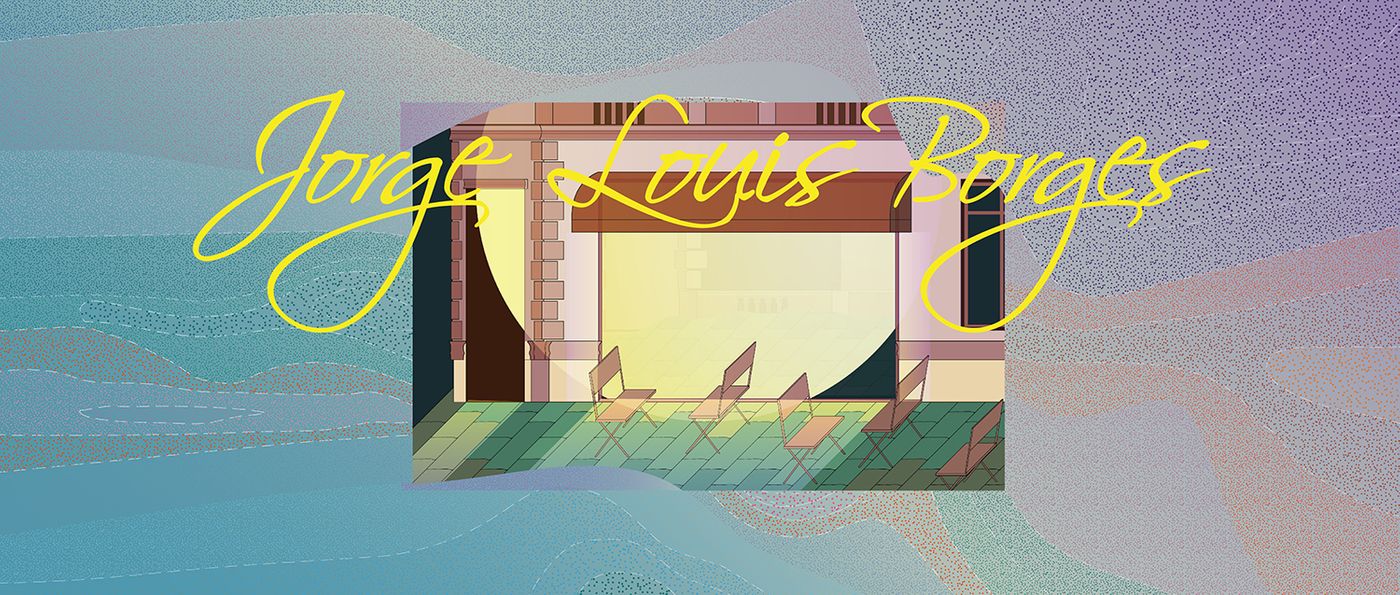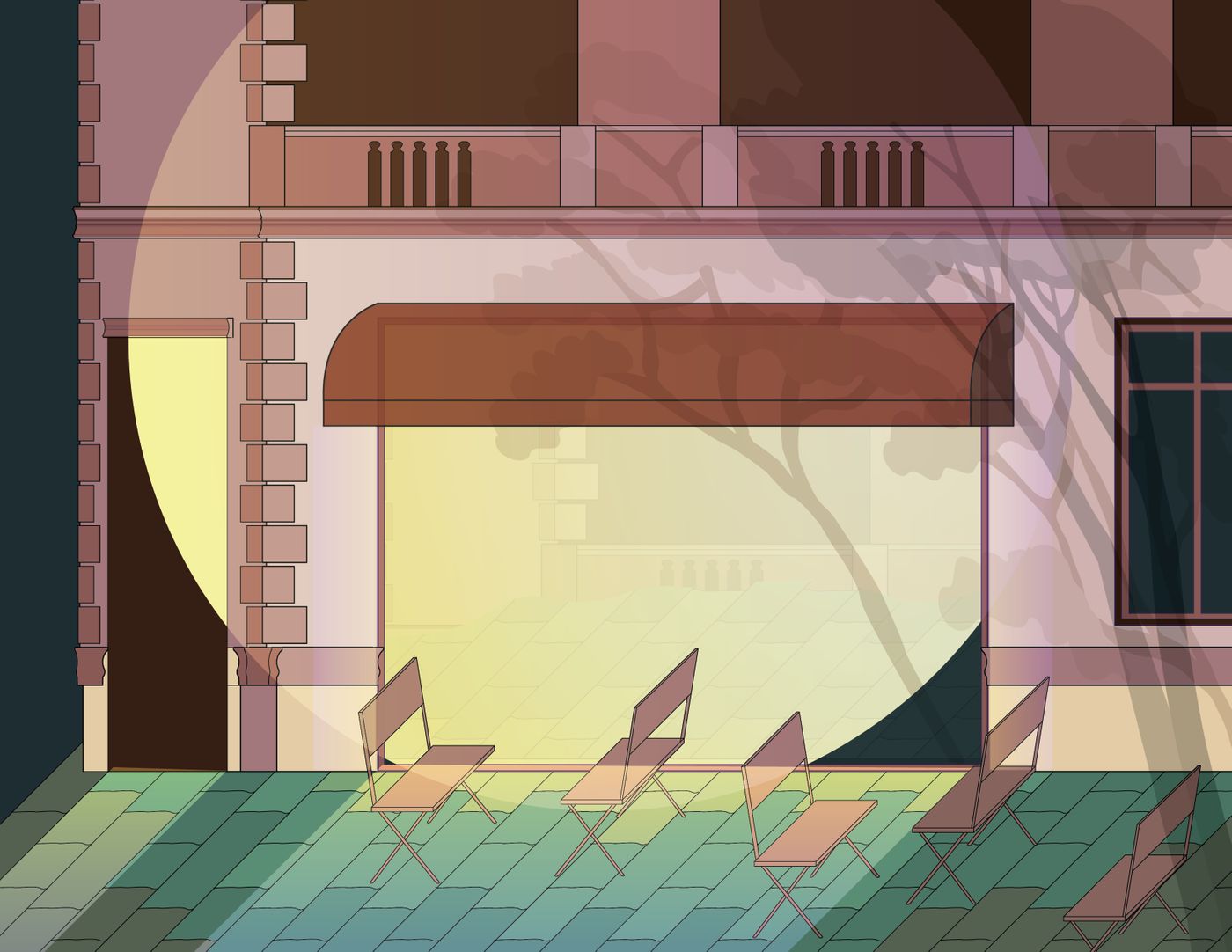When Borges was disappointed and distressed
Today, on the 121st anniversary of Borges' birth, we would like to present his work "Palermo of Buenos Aires". This short essay is included in the essay collection Evaristo Calego.

When Borges is mentioned, the first thing that comes to mind is "the labyrinth, the mirror, the infinite and the eternal time, the reciprocating fate"... For most readers - including us - "Evaristo Calego" ” This collection is not the one that first began to understand him. This book is about an "Old Buenos Aires".
National or local writing was not the main reason for the Argentine writer's worldwide reputation. To list a few of his short stories - "Uenosuke Uenosuke" is a Japanese story, "German Requiem" is German, "The Garden of Forking Paths" is from Chinese culture, "Other" A Man is set in the United States, Blue Tiger is in the Indian jungle... As for many other fictions, the reader can't extract the hints of specific places between the lines, and they seem to have a mythical sense of generality - the story is true There are fables about human beings, but they are not placed on a real place name on the earth, and it is for this reason that these fables transcend the limitations of a single nation or culture, and point to life and death, time and time. Space, fate, and coincidence become a matter of "all human beings".
But understanding Borges' locality is perhaps as important as understanding his de-locality. Yes, he's a worldwide writer, but we can't talk about him as a writer without a homeland. In 1899, Jorge Luis Borges was born in Palermo, Buenos Aires. The silent dusk and the moon he saw in this land, his grandmother took him to Palermo The tigers and roses stared at at the zoo, the persistent desolate suburban temperament that stays on the skin, and the domineering and ruthless disposition of the Gauchos who travel on horseback, dissolve in a way that may disappear in many subsequent creations. (fictional and non-fictional) works.
... Palermo at the time was just some desolate wetlands behind the motherland. The most direct way is to show a series of still images in a cinematic way: a group of mules in the vineyard, blindfolded with stubborn temper; a few willow leaves floating on the wide stagnant water; On stilts wading through fast-flowing waters; vast fields silent; hoof-prints trampled by cattle rushing to the north corral; a farmer (at dawn) dismounted his exhausted horse and chopped off its stout neck; Smoke disappearing into the air.
- "Palermo of Buenos Aires"
The above text provides perceptual touchpoints with quick edits and collages of some scenes that quickly and successfully paint an overall image of the town. Although it is abrupt, Borges' line-drawn memorial to his homeland reminds me of Lu Xun's writing.
Lu Xun put "Social Opera" at the end of the novel "The Scream". Before it, the more "typical Lu Xun" works such as "Diary of a Madman", "The True Story of Ah Q", "Kong Yiji" and "Hometown" displayed his scalpel-like acerbicity, mockery, anger and sigh. But after these stern tone, "Social Opera" shows a kind of calm and gentleness that seems very different. At this time, the author's all outgoing screams finally ended in an inward, simple and plain memory of childhood, which is a non-technical, personal nostalgia and love. It may be precisely because of this arrangement that "Social Opera" has achieved such a powerful emotional impetus. Because it's personal enough, the incredibly peaceful narrative has a profoundly lyrical effect.
Perhaps this is why, after reading a lot of Borges's more prestigious works, reaching Palermo in Buenos Aires has a strange feeling.
"Palermo in Buenos Aires" presents a naked and real Borges that seems unusual in many other texts. Borges is not a writer who often expresses personal emotions. Even his emotional expressions are aimed at a broader and eternal object, such as literature and poetry itself, or abstract things such as "color," "night," and "death." With no strong inclinations in his stories and fables, no moral judgments - no praise and criticism - Borges seems to just put himself behind the scenes of the narrative and do something about what is surging in "mysterious time" Just an objective description. The lyric in many poems, he also expressed through the mouths of others, historical figures or other authors.
But in Palermo in Buenos Aires, he tells us here:
When I wrote down these memories from my memory, I suddenly remembered the poem in "Homesickness" for no reason: "England has helped me here and now." When Browning wrote the poem, he thought of self-sacrifice and Nelson's fallen flagship - I translated his homeland's name too, because for Browning he immediately thought of England's - but to me a lonely night, fascinated by endless blocks walk. Buenos Aires is very deep. When I am disappointed or distressed, as soon as I walk on its streets, I either have an illusory feeling, or hear the sound of guitars from the depths of the courtyard, or have contact with life, At this time, I always get unexpected comfort. "England helped me here and now", here and now, Buenos Aires helped me. That's one of the many reasons why I decided to write this first chapter.
The city has a depth, and never once, in disappointment or grief, did I abandon myself to its streets without receiving unsought consolation either from a sense of unreality or from a guitar played in the depths of a patio or from the touch of other people's lives "'Here and here did England help me"'—here and here did Buenos Aires come to my aid.
- "Palermo of Buenos Aires"

For a man who lives in the metaphysics and fictions of literature, when he feels disappointment and pain, a real hometown can provide deep consolation - a kind of "help". In this essay, the other Borges becomes the private Borges .
For this Argentine, Buenos Aires holds so much significance - because it is the wide streets of Palermo at night, the shops on the corners as bright as the moon, the sound of guitars behind the balcony railings, the tigers in the zoo , the rosy smoke of the cigar shop in the afternoon, the crowd sitting under the trees on a summer evening. These vague spatial feelings and images in memory, intertwined with mysterious stories and fables, created countless intentions, and they have always accompanied him and brought him comfort. I think each of us has a city that has more memory and fantasy than reality at the moment. This city not only comforts us in the form of childhood memories in our lonely, confused and sad moments, but also changes and appears in our dreams and imaginations, creating a unique poetry for our lives.
Follow the WeChat public account Dune Research Institute to get first-hand updates
Link to the original text of this article: When Borges was disappointed and painful
Like my work? Don't forget to support and clap, let me know that you are with me on the road of creation. Keep this enthusiasm together!

- Author
- More